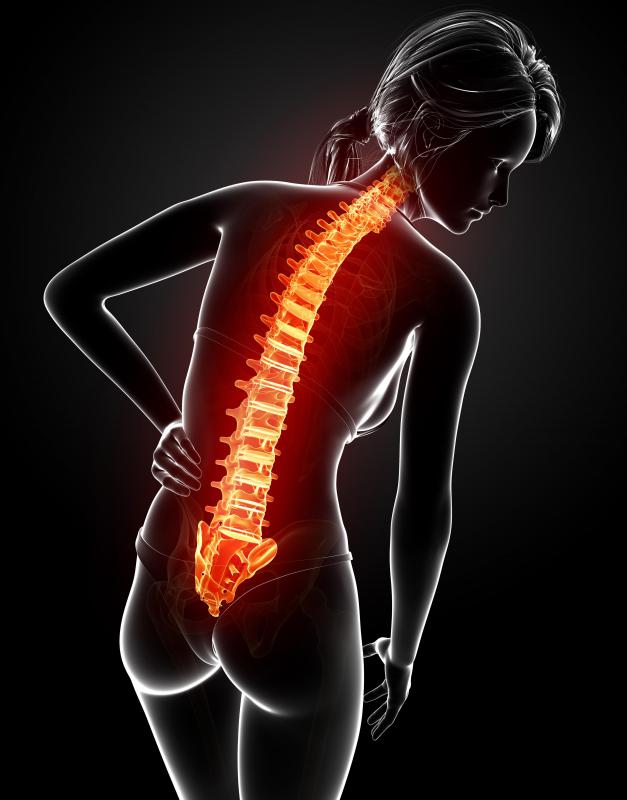At TheHealthBoard, we're committed to delivering accurate, trustworthy information. Our expert-authored content is rigorously fact-checked and sourced from credible authorities. Discover how we uphold the highest standards in providing you with reliable knowledge.
What Are the Different Types of Pain Pump?
Though all pain pumps function in basically the same way, there are a few different types that doctors can implant into their patients as a part of a pain management plan. In all cases, the pump is implanted into the patient's body, though some types of pain pumps contain external components that the patient must wear outside the body. A pain pump can be designed for use as either long-term pain management or short-term relief from pain after surgery. A number of different manufacturers make each of these pumps in different sizes and various specifications.
The most common type of pain pump is used to relieve chronic pain in the back, neck, or head. This type of pain pump is called an intrathecal pump and is implanted into the patient's abdomen, situated so that the device can deliver medication directly into the patient's spinal cord. This manner of medication delivery can successfully block the transmission of pain through the central nervous system, significantly decreasing the amount of pain a patient feels. These devices are designed for long-term pain management and are usually only used when other treatments have failed. Once the pain pump has been implanted, a doctor can refill it every few months.

Pain pumps are often used following joint surgery and are designed to provide pain relief until the patient heals. These pumps are placed near the affected joint and deliver medication directly to the injured area. In many cases, certain parts of this kind of pump are left outside the patient's body, which makes it easy to control the dosing and to remove the device when it is no longer needed. Though they can provide consistent pain relief, long term use of these pain pumps can cause the cartilage in a joint to deteriorate.

There are many different companies that currently manufacture pain pumps. Though they are all safe to implant, the pumps come in different sizes and may be specially designed to administer a certain type of medication. In most cases, the doctor or surgeon will make a recommendation based on his experience with the different types of pain pumps.
AS FEATURED ON:
AS FEATURED ON:
















Discussion Comments
How much would they cost? Everything all together.
Post your comments